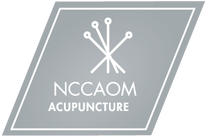 I have one question for you. What would your life be like without any stress? Can you even imagine it? Would you know how to live without it? Would you eventually want it back? Now, I'm not pretending that I know what "stress" is for you. In fact, I don't believe the word "stress" is an accurate description of what anyone claims it to actually be. In my experience, we simply use this word as a label, like we do with many others, because we are unable to describe what it is we are actually experiencing when the things we call "stressors" appear in our lives. Sure, you cannot control certain situations, such as when someone comes to your desk asking for your assistance with a task when you're already buried in work. What you CAN do is manage the situation by observing your response. Observe what happens in you physically: Does your breathing increase in frequency? Does your heart start to pump faster? Do you hold your tongue and prevent yourself from saying what you REALLY want to say? Isn't it interesting how our decisions and our reactions/responses change our bodies' physiology in an instant? Also, did you know that the chemical response of generating an emotion lasts approximately for 90 seconds only? Interesting, considering the stories that go on in our heads easily continue for MUCH LONGER than 90 seconds. (Perhaps we should all call ourselves great storytellers like Bill Cosby.) But seriously though, after 90 seconds of listening to your co-worker ask for your assistance and you then responding to his or her request, do you often find yourself hung up on the situation repeating it in your head, or making stories up about this person never doing any work and always passing it off onto others? If so, you're digging your own grave at a very rapid and emotionally-charged pace. By learning to manage your reactions/responses in simple situations such as these, it is quite possible that you may never even reach the 90 second point. Awareness of your emotions is the key to the door for managing stress. Observe what happens inside of you during similar situations. Do the same things always appear? Does your breathing always rise up into your chest and occur more frequently? Do you clench your jaw automatically? Does your face always blush? If you picked apart each physiological response that happened in these situations and pondered about them, I'm certain you could come up with a way to limit the length of its presence in the moment, and perhaps for good.
Understanding what happens inside of your body and how it manifests on the outside will determine your ability to live with or without "stress". So, the next time you encounter what you consider to be a "stressful" situation, keep your senses open. After the situation passes, reflect upon what just happened and understand why your body did what it did. Do this and the relationship you have with your body will strengthen, and who knows, maybe even your relationship with others will as well. Peacefully,
0 Comments
Leave a Reply. |
Posted here are...inspirational ideas on healthy living through eastern medicine, optimism, and possibility through empowerment. Archives
March 2020
Categories
All
|
HOURS & LocationMondays-Thursdays 5:30-6:30pm (Tai Chi & Qigong only)
Fridays 5:00-6:00pm (Tai Chi & Qigong only) Saturdays 1:00-6:00pm (Acupuncture only) |
CONTACT Us |


 RSS Feed
RSS Feed



